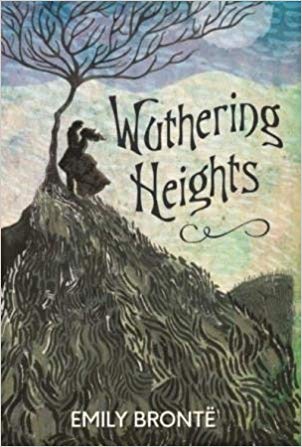Students should be encouraged to read classics

Wuthering Heights by Emily Bronte is another example of a classic book.
December 17, 2018
Imagine sitting by your window and enjoying the serenity of a nice, warm mug of tea: the sound of sparkling raindrops pitter-patter gently against the pane as you bundle up in a thick, cozy comforter. Perched between your hands is a novel that has been treasured for over a century; filled with wisdom, beauty and treasures of the past. Within minutes, you lose yourself in a momentary escape from reality, and you cannot help but feel as if you have landed in another universe, a time period so captivating, distant and intriguing, replete with historical mystery. You feel as if you have revived an intrinsic part of your roots and unravelled the years that have molded the present.
While many individuals around the world continue to cherish classics written before the 21st century, they remain a closed book in the lives of the majority of East’s student body outside of the classroom. While the majority of students at East refrain from reading classic literature for pleasure, many of those students understand the importance of these works. In light of this situation, teachers and staff at East must implement ideas that will encourage more students to delve further into the world of classics.
In a survey that measured the reading habits of 60 students at East, composed of 43 females and 17 males, the percentage of students that were likely to read classic literature (along with modern literature) in their free time was strikingly minute, at only about 3%. Yet, surprisingly, approximately 43% of the remaining 97% of students indicated that they believed that classic literature should remain a core component of the English curriculum at East.
“Classics are important to understanding how modern literature has been shaped and changed,” said Emily Mahaffy (‘20).
However, shouldn’t the importance of classic literature encourage students to further explore these works outside of the classroom? The English curriculum only covers a meager portion of the expansive universe of the past, and thousands of precious literary gems remain unknown to thousands of students at East. Many students have yet to encounter the sparkling wit and light-hearted elegance of Jane Austen’s works and remain strangers to the thought-provoking insights of Tolstoy. Mention the haunting Manderley, and few students are likely to connect the reference to Du Maurier’s chillingly gothic Rebecca.
wuthering heightsFortunately, East’s staff has the power to unlock the key to the past to its students by implementing strategies that could encourage classic literature to students. For instance, English teachers and librarians could collaborate to inspire students to explore the works of an unfamiliar author. Extra credit or special rewards could also be included as incentives for students to further research and navigate through the array of classics. East has endless potential to open a new chapter in the literary development of its students. By implementing a few simple ideas, students can truly begin to understand the foundations of their world and experience a deeper, more exhilarating state of thought-not only in the classroom, but outside of it as well.






